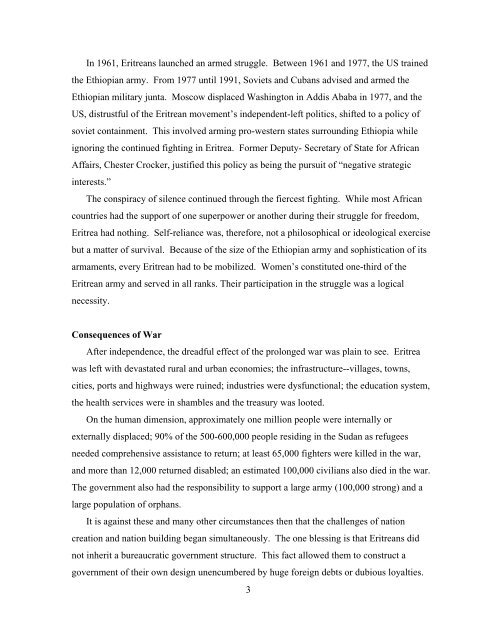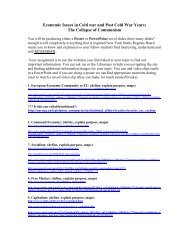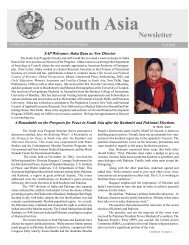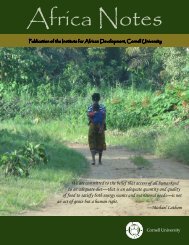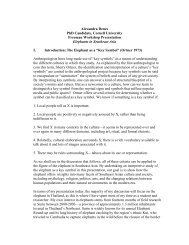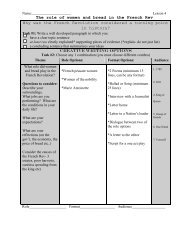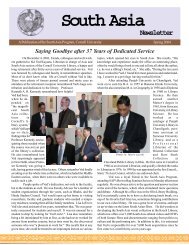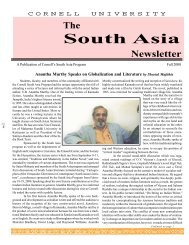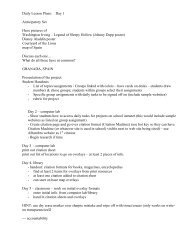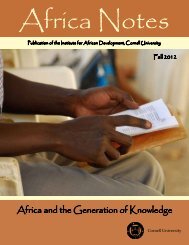Technology Transfer in Eritrea - Institute for African Development
Technology Transfer in Eritrea - Institute for African Development
Technology Transfer in Eritrea - Institute for African Development
Create successful ePaper yourself
Turn your PDF publications into a flip-book with our unique Google optimized e-Paper software.
In 1961, <strong>Eritrea</strong>ns launched an armed struggle. Between 1961 and 1977, the US tra<strong>in</strong>ed<br />
the Ethiopian army. From 1977 until 1991, Soviets and Cubans advised and armed the<br />
Ethiopian military junta. Moscow displaced Wash<strong>in</strong>gton <strong>in</strong> Addis Ababa <strong>in</strong> 1977, and the<br />
US, distrustful of the <strong>Eritrea</strong>n movement’s <strong>in</strong>dependent-left politics, shifted to a policy of<br />
soviet conta<strong>in</strong>ment. This <strong>in</strong>volved arm<strong>in</strong>g pro-western states surround<strong>in</strong>g Ethiopia while<br />
ignor<strong>in</strong>g the cont<strong>in</strong>ued fight<strong>in</strong>g <strong>in</strong> <strong>Eritrea</strong>. Former Deputy- Secretary of State <strong>for</strong> <strong>African</strong><br />
Affairs, Chester Crocker, justified this policy as be<strong>in</strong>g the pursuit of “negative strategic<br />
<strong>in</strong>terests.”<br />
The conspiracy of silence cont<strong>in</strong>ued through the fiercest fight<strong>in</strong>g. While most <strong>African</strong><br />
countries had the support of one superpower or another dur<strong>in</strong>g their struggle <strong>for</strong> freedom,<br />
<strong>Eritrea</strong> had noth<strong>in</strong>g. Self-reliance was, there<strong>for</strong>e, not a philosophical or ideological exercise<br />
but a matter of survival. Because of the size of the Ethiopian army and sophistication of its<br />
armaments, every <strong>Eritrea</strong>n had to be mobilized. Women’s constituted one-third of the<br />
<strong>Eritrea</strong>n army and served <strong>in</strong> all ranks. Their participation <strong>in</strong> the struggle was a logical<br />
necessity.<br />
Consequences of War<br />
After <strong>in</strong>dependence, the dreadful effect of the prolonged war was pla<strong>in</strong> to see. <strong>Eritrea</strong><br />
was left with devastated rural and urban economies; the <strong>in</strong>frastructure--villages, towns,<br />
cities, ports and highways were ru<strong>in</strong>ed; <strong>in</strong>dustries were dysfunctional; the education system,<br />
the health services were <strong>in</strong> shambles and the treasury was looted.<br />
On the human dimension, approximately one million people were <strong>in</strong>ternally or<br />
externally displaced; 90% of the 500-600,000 people resid<strong>in</strong>g <strong>in</strong> the Sudan as refugees<br />
needed comprehensive assistance to return; at least 65,000 fighters were killed <strong>in</strong> the war,<br />
and more than 12,000 returned disabled; an estimated 100,000 civilians also died <strong>in</strong> the war.<br />
The government also had the responsibility to support a large army (100,000 strong) and a<br />
large population of orphans.<br />
It is aga<strong>in</strong>st these and many other circumstances then that the challenges of nation<br />
creation and nation build<strong>in</strong>g began simultaneously. The one bless<strong>in</strong>g is that <strong>Eritrea</strong>ns did<br />
not <strong>in</strong>herit a bureaucratic government structure. This fact allowed them to construct a<br />
government of their own design unencumbered by huge <strong>for</strong>eign debts or dubious loyalties.<br />
3


